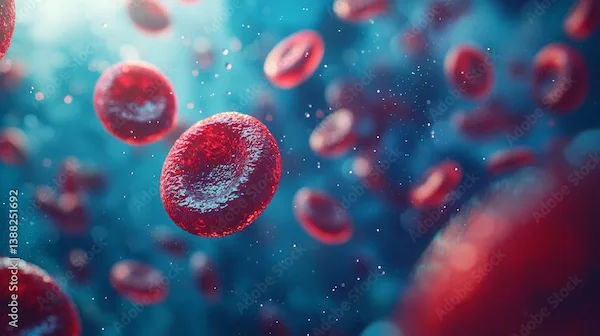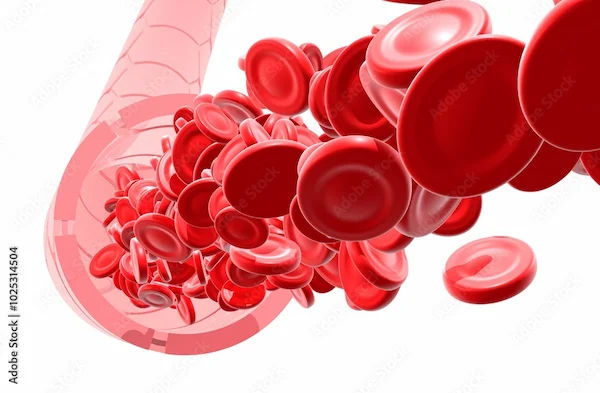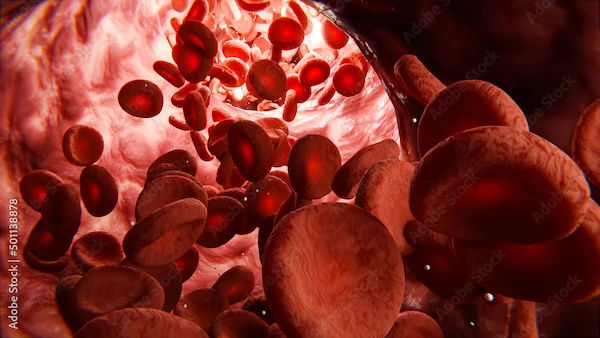How To Increase Platelet Count In Malaria
Low platelet count due to malaria? Understand the condition and explore potential supportive measures alongside medical treatment. Always follow your doctor's guidance for managing malaria and thrombocytopenia

Written by Dr.Sonia Bhatt
Last updated on 16th Jul, 2025

Malaria is a serious illness caused by parasites transmitted through mosquito bites. One of the common complications of malaria is a drop in platelet count, a condition known as thrombocytopenia. Platelets are tiny blood cells that help with clotting and prevent excessive bleeding. When their numbers drop too low, it can lead to fatigue, easy bruising, and in severe cases, internal bleeding.
If you or a loved one is suffering from malaria and experiencing low platelet counts, don’t worry—there are ways to naturally and medically boost platelet levels. Here’s a simple guide to help you understand and manage this condition effectively.
Why Does Malaria Cause Low Platelet Count?
Malaria affects platelet production and survival in multiple ways:
Destruction by the Immune System: The body's immune response to malaria can inadvertently lead to the destruction of platelets.
Reduced Production: The malaria infection can interfere with the bone marrow's ability to produce new platelets at its normal rate.
Spleen Enlargement: An enlarged spleen, a consequence of malaria, can trap and eliminate platelets more rapidly.
Symptoms of Low Platelet Count
If your platelet count drops significantly, you may notice:
Easy bruising or bleeding
Tiny red or purple spots on the skin (petechiae)
Prolonged bleeding from minor cuts
Fatigue and weakness
Nosebleeds or bleeding gums
How to Increase Platelet Count Naturally?
While medical treatment is essential for malaria, certain dietary and lifestyle changes can help improve platelet levels:
Eat Platelet-Boosting Foods: Consume papaya and its leaves, pumpkin, spinach and leafy greens, citrus fruits, beetroot, carrots, and lean proteins, which contain nutrients that may support platelet production and function.
Stay Hydrated: Drink plenty of water, coconut water, and herbal teas to maintain healthy blood volume and circulation.
Avoid Certain Foods & Habits: Limit or avoid alcohol, caffeine, processed and sugary foods, and blood-thinning medications (unless prescribed) to aid platelet recovery.
Get Enough Rest: Prioritize adequate sleep to support overall body recovery and immune function.
Consult Top Physician For Platelet Count
Medical Treatments to Increase Platelet Count
If natural remedies aren’t enough, doctors may recommend:
Antimalarial Medications: Effectively treating the underlying malaria infection is crucial for the recovery of platelet levels.
Platelet Transfusions: In cases of severely low platelet counts, a transfusion can provide a rapid increase in platelets.
Steroids or Immunoglobulins: If the body's immune system is contributing to platelet destruction, these medications may help regulate the immune response.
When to See a Doctor?
Seek immediate medical attention if you experience:
Excessive bleeding
Severe fatigue or dizziness
Unexplained bruises or rashes
Persistent fever despite treatment
Preventing Malaria & Platelet Drop
The best way to avoid complications is prevention:
Use mosquito nets and repellents.
Wear long sleeve clothing in malaria-prone areas.
Take prescribed antimalarial prophylaxis if traveling to high-risk zones.
Conclusion
Low platelet count in malaria is common but manageable. A combination of proper medical care, a nutritious diet, and rest can help restore platelet levels effectively. If you suspect malaria or notice symptoms of thrombocytopenia, consult a doctor immediately for the right treatment. For expert advice or to book a consultation, you can visit Apollo 24|7 and connect with healthcare professionals who can guide you through recovery. Stay safe, eat well, and take care of your health!
Consult Top Physician
Consult Top Physician For Platelet Count

Dr. D Bhanu Prakash
General Practitioner
10 Years • MBBS, AFIH, Advanced certificate in critical care medicine, Fellowship in critical care medicine
Hyderabad
Apollo 24|7 Clinic, Hyderabad

Dr. M L Ezhilarasan
General Practitioner
6 Years • MBBS
Visakhapatnam
Apollo 24|7 Clinic - Andhra Pradesh, Visakhapatnam

Dr D M Karthik
General Practitioner
4 Years • MBBS, Fellowship in Diabetes Mellitus, Advance certificate in Diabetes Mellitus
Visakhapatnam
Apollo 24|7 Clinic - Andhra Pradesh, Visakhapatnam

Dr. Vasanthasree Nair
General Practitioner
15 Years • MBBS
Angamaly
Apollo 24|7 Clinic - Kerala, Angamaly
(425+ Patients)

Dr. J T Hema Pratima
General Practitioner
9 Years • MBBS
Chennai
Apollo 24|7 Clinic - Tamilnadu, Chennai
(250+ Patients)
Consult Top Physician

Dr. D Bhanu Prakash
General Practitioner
10 Years • MBBS, AFIH, Advanced certificate in critical care medicine, Fellowship in critical care medicine
Hyderabad
Apollo 24|7 Clinic, Hyderabad

Dr. M L Ezhilarasan
General Practitioner
6 Years • MBBS
Visakhapatnam
Apollo 24|7 Clinic - Andhra Pradesh, Visakhapatnam

Dr D M Karthik
General Practitioner
4 Years • MBBS, Fellowship in Diabetes Mellitus, Advance certificate in Diabetes Mellitus
Visakhapatnam
Apollo 24|7 Clinic - Andhra Pradesh, Visakhapatnam

Dr. Vasanthasree Nair
General Practitioner
15 Years • MBBS
Angamaly
Apollo 24|7 Clinic - Kerala, Angamaly
(425+ Patients)

Dr. J T Hema Pratima
General Practitioner
9 Years • MBBS
Chennai
Apollo 24|7 Clinic - Tamilnadu, Chennai
(250+ Patients)

